Keywords: Young People In Detention
-
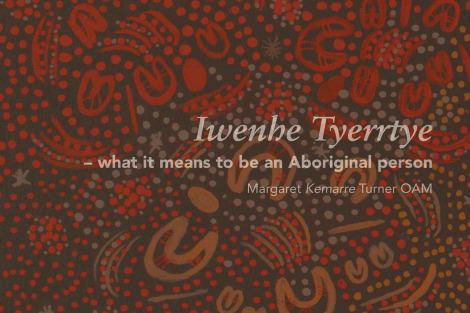
AUSTRALIA
- Mike Bowden
- 10 August 2016
11 Comments
MK rang me after the 4 Corners program on the treatment of children at Don Dale. In western lingo we talk about a 'duty of care', but for my friend MK and the Arrernte people it is more fundamental than that. They talk abou arntanrte-aremele, which means looking after, holding, nurturing or caring for. Altyerre teaches that we must care for everybody, even the people who do wrong. And 'looking after' the children is the primary role of life. This is not about western, whitefella law, it just how it is.
READ MORE 
-

AUSTRALIA
- Julie Kimber
- 27 July 2016
13 Comments
The 4 Corners report into the treatment of children in a NT juvenile justice facility is a stark and grotesque demonstration of state abuse of power. As a result John Elferink, NT Corrections Minister, has been sacked, and the Prime Minister has announced a royal commission into the actions at Don Dale. This is a good start, but there is much more to be done. We need to question a culture that willingly imprisons the most vulnerable, and puts up with a system where not all are equal before the law.
READ MORE 
-
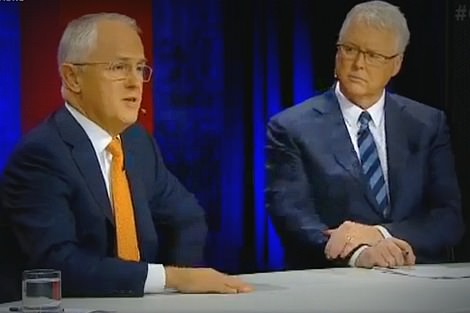
INTERNATIONAL
- Samuel Dariol
- 23 June 2016
15 Comments
It is one thing to sit at a desk and make policies that will impact on individuals across the sea whom you do not know. It is another thing to cross the sea, to look into the eyes of people abandoned there, to meet the children and see the pictures they have drawn, and to see in their eyes terror, despair, depression and contempt. For a prime minister to go to Manus Island would require him to throw off the shroud and stare affrighted at the maggots in the flesh of the body politic.
READ MORE 
-
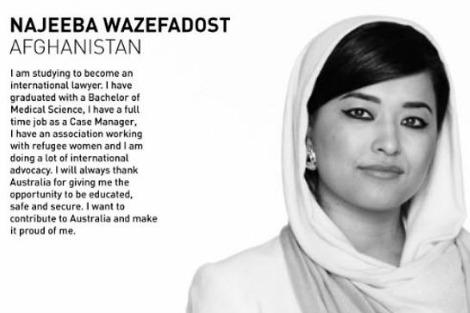
AUSTRALIA
- Somayra Ismailjee
- 20 May 2016
33 Comments
The irony of trying to negate these stereotypes is that in doing so, we are still cheapening asylum seekers to political tools, stripping them of their humanity and multiplicity. Aiming to counter such rhetoric as Dutton's with stories of high-achieving refugees plays into a toxic game that legitimises the same negative stereotypes by engaging with them. Just as invisibility dehumanises asylum seekers, so does the hypervisibility we attribute to a select few stories.
READ MORE 
-
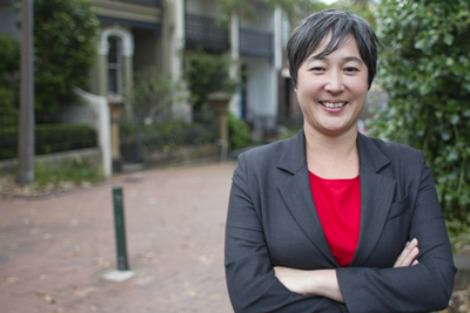
AUSTRALIA
- Justin Glyn
- 20 April 2016
9 Comments
Last week, a member of Parliament, Jenny Leong, allegedly faced racist and sexist abuse by police from at least four separate commands. This abuse was linked to her opposition (in accordance with her party's stated policy) to the use of drug sniffer dogs without a search warrant. Whether or not one agrees with Green party policy in this regard, the treatment of Leong ought to rankle. Such ill-treatment at the hands of the executive is, unfortunately, not an isolated phenomenon.
READ MORE 
-
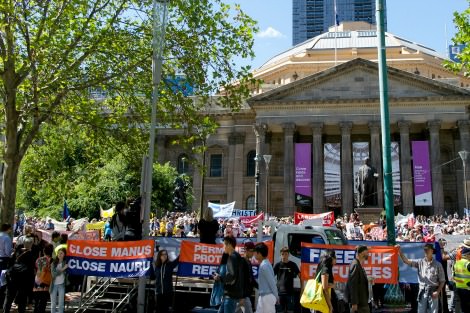
AUSTRALIA
- Andrew Hamilton
- 31 March 2016
5 Comments
The Palm Sunday Refugee Marches have come and gone; the travails of people who seek asylum continue. In a recent article that reflects her rich experience, Moira Rayner was right to say that marches are not effective in changing policy. Where they are, as in the Vietnam War marches in Australia or in Manila under Marcos, the fortress was already crumbling. Yet even when they are not effective, marches are not a waste of energy. Their value lies not in their effectiveness but in their ritual.
READ MORE 
-
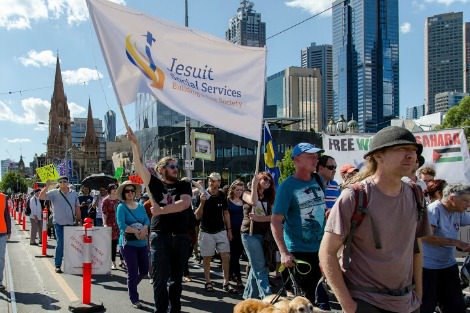
AUSTRALIA
- Moira Rayner
- 22 March 2016
18 Comments
When I received my invitation to 'lead' the Palm Sunday Walk for Refugees my first response was to ignore it. This was partly ego and partly disillusionment. It's true that in Melbourne at least 6000 people walked or struggled or strode along Spencer Street. But I no longer believe marches for huge national issues have any effect on local powerbrokers. I believe as Saul Alinsky said that the most powerful force for change is local activism on local issues and generational organisation from the grass roots up.
READ MORE 
-
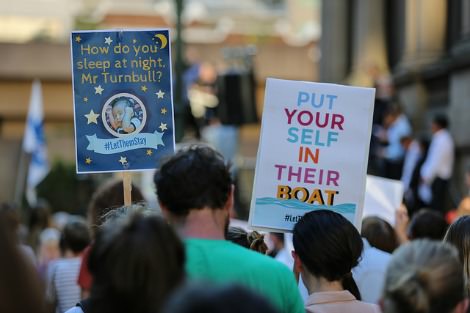
AUSTRALIA
- Somayra Ismailjee
- 12 February 2016
8 Comments
Since the first churches offered sanctuary to the refugees facing deportation to Nauru, a steady stream of voices have joined the call for compassion. As a political language, compassion is itself a reclamation of power. Extending safety, resources, or even a mere welcome to people in need proves that we have something to give. Strength is embodied by a capacity to aid and assist, rather than in cruelty. Empathy, care and compassion appeal to us on a level of emotion that runs deeper than mere rhetoric.
READ MORE 
-
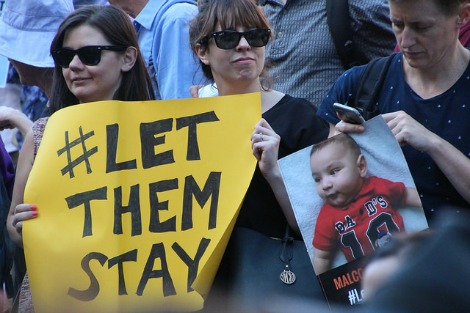
AUSTRALIA
- Andrew Hamilton
- 11 February 2016
15 Comments
The High Court decision on detention in Nauru came down just before the Christian season of Lent. It left the government free and determined to deport many young mothers and children to Nauru. For the mothers and children deportation will bring new trauma with renewed threat to their already precarious mental health. For the Australian public it again makes us ask what brutality, even to children, we are ready to tolerate. The savagery of this treatment is a suitable subject for Lenten reflection.
READ MORE 
-
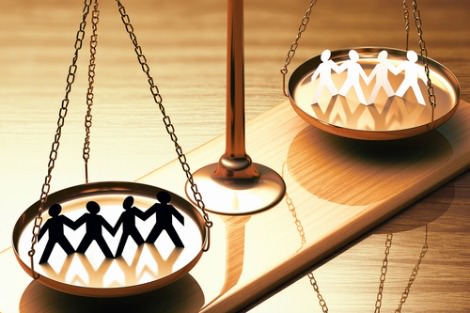
AUSTRALIA
- Somayra Ismailjee
- 03 February 2016
6 Comments
A perception of Muslims as 'savage' and antithetical to peace accounts for incidents where overtly racist people can rejoice easily at the loss of human life, to little negative reaction. When a person is deemed unworthy or bereft of humanity, their death becomes gruesomely welcome. While Islamophobia itself does not define racism, Muslim people exemplify ideas of a cardinal threat against the Anglocentric West, which laterally affects how brown non-Muslim minority groups are treated.
READ MORE 
-
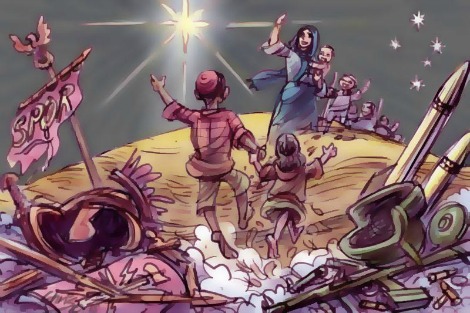
AUSTRALIA
- Andrew Hamilton
- 17 December 2015
19 Comments
The pastel coloured domesticity of the images of Jesus' birth does not do justice to its context. Herod's sending out first his spies to find where the Messiah was to be born, and then his soldiers to eradicate the threat the child posed to national security, may not appear on Christmas cards, but they frame the story of Jesus' birth. The disjunction between the tenderness of the Christmas stories and the brutality of their public context is mirrored in the conflict between the humane values of the Gospel and the harsh instrumental values of the public world in any age.
READ MORE 
-

AUSTRALIA
- Frank Brennan
- 10 December 2015
I first met this Tony on my regular visits here to Darwin when he was working at the North Australian Aboriginal Legal Aid Service and then when he set up the mediation services under the auspices of Anglicare. In later years I knew him when he was your Anti-Discrimination Commissioner. He was a quiet, considered, gentle, strong and principled man. On Human Rights Day, it is only fitting that I honour Tony by offering some reflections on the architecture for human rights in Australia, on the contemporary human rights controversies, and on the way forward for better protection of the human rights of Aborigines and asylum seekers, two marginalised groups who had a special claim on Tony's sympathies.
READ MORE